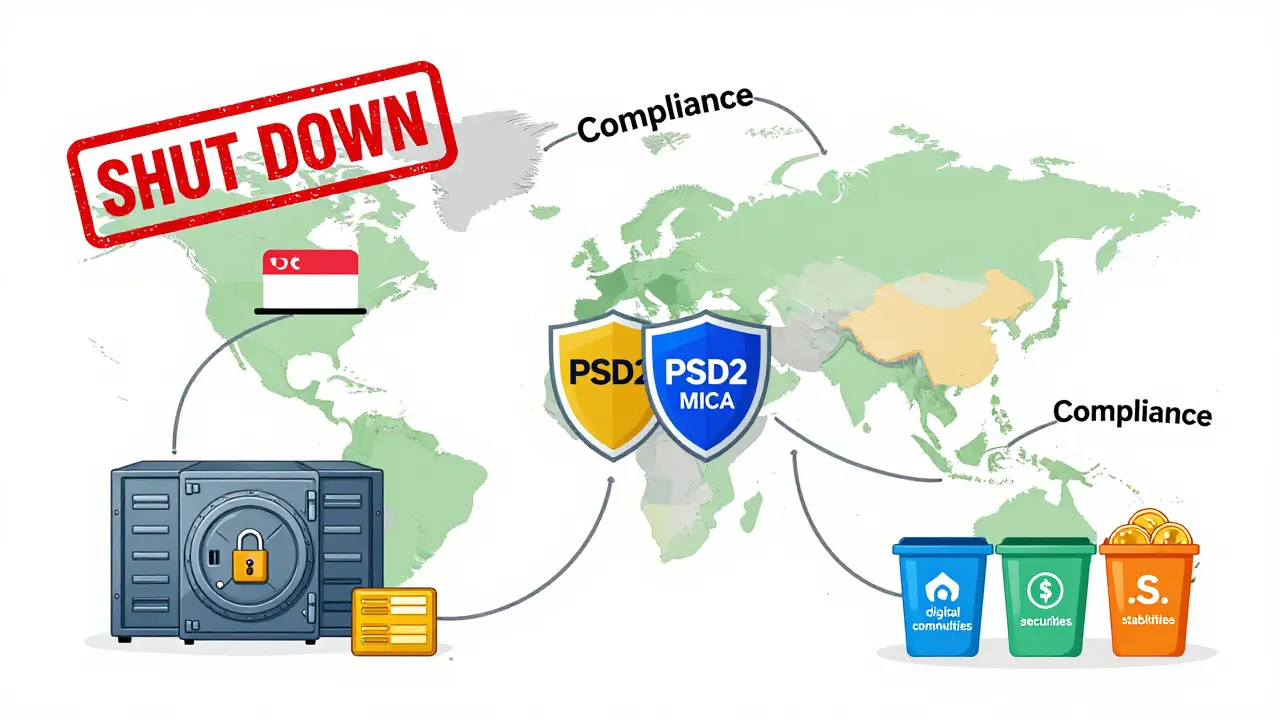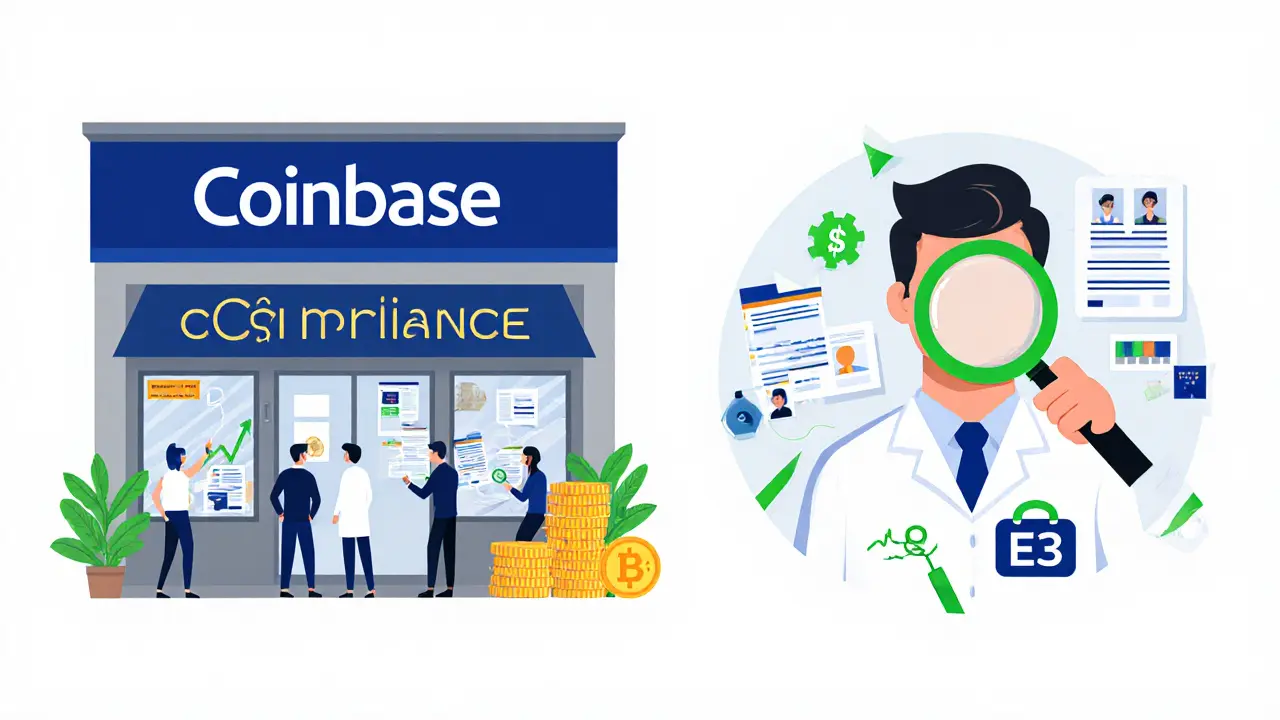Crypto Compliance: What It Really Means and How It Affects Your Trades
When we talk about crypto compliance, the set of legal and operational rules that crypto businesses and users must follow to operate legally. Also known as crypto regulation, it's not something that only affects big exchanges—it touches every trader, investor, and user who touches digital assets. If you're buying Bitcoin, earning yield on DeFi, or even getting an airdrop, you're already inside the system. Compliance isn't optional if you want to avoid fines, frozen accounts, or worse.
It starts with regulated crypto exchange, platforms licensed by financial authorities to handle user funds and trades. Examples like SATOS in the Netherlands or FIU-IND registered platforms in India aren't just safer—they're the only ones that let you trade without risking your money or your legal standing. These exchanges verify your identity, report to tax agencies, and follow AML crypto, anti-money laundering rules designed to stop criminals from using digital assets to hide illegal funds. Without AML checks, your wallet could be flagged, your trades frozen, or your account shut down overnight.
Then there's crypto tax, the obligation to report gains, income, or even gifts from crypto transactions to your government. In Thailand, you get a five-year tax break—but only if you trade on licensed platforms. In India, it’s a flat 30% tax plus 1% TDS on every trade. In the U.S., even swapping one coin for another is a taxable event. Ignoring this isn’t a loophole—it’s a audit waiting to happen. The IRS, HMRC, and other agencies now track blockchain activity directly. If you’re holding tokens from a dead project like SEAT or LAND, you still owe taxes on the value when you bought them.
Compliance also shapes what projects survive. Look at the posts below: Venus BTC works because it’s built on a regulated chain. Secret (SCRT) thrives because it’s transparent about privacy without breaking laws. But projects like Concern Poverty Chain or VikingsChain? They vanish because they ignore compliance—no audits, no licenses, no accountability. That’s not innovation—it’s gambling with your money.
And it’s not just about exchanges and taxes. HSMs, smart contracts for property sales, cross-border payments—all these tools only work if they follow local and international rules. You can’t use a crypto payment system if the bank won’t process it because the sender isn’t KYC’d. You can’t trade on a zero-fee DEX if it’s been flagged by regulators for lacking AML controls. Compliance isn’t the enemy of crypto—it’s what lets it scale without collapsing under its own weight.
Below, you’ll find real reviews, breakdowns, and warnings from people who’ve been burned—or saved—by crypto compliance. Some platforms are legit. Some are traps. Some are barely hanging on. Knowing the rules helps you tell the difference.
Payment Services Act Crypto Provisions and Requirements: What You Must Know in 2026
In 2026, crypto platforms must comply with strict, region-specific rules under the Payment Services Act. Singapore, Japan, the EU, and the U.S. each have different requirements for licensing, storage, authentication, and disclosures. Know what applies to you-or risk shutdown.
Details +SEC Crypto Enforcement: How $4.68 Billion in Fines Changed the Industry
The SEC fined crypto companies $4.68 billion in 2024 - mostly from one case. But after a leadership change, enforcement shifted from punishing technical violations to targeting fraud. Here's what it means for crypto today.
Details +E3 Crypto Exchange Review: What E3 Compliance Technologies Really Does for Crypto Exchanges
E3 is not a crypto exchange - it's a compliance platform used by exchanges to meet global regulations. Learn how E3CT works, its pricing, real user feedback, and why it's essential for exchanges in the EU.
Details +

